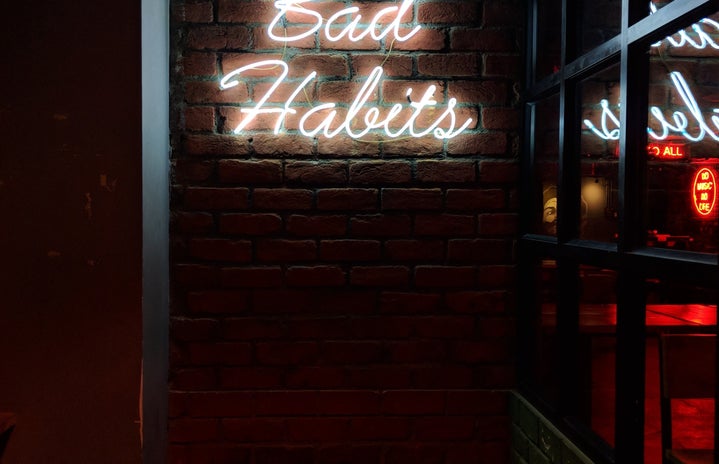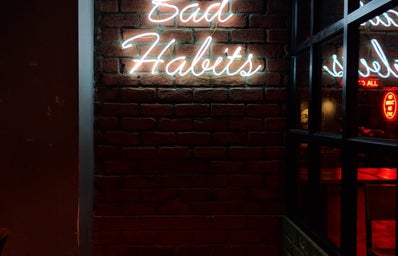Nearly nine months into social distancing due to COVID-19, our lifestyles have shifted to meet new expectations. In some ways, the pandemic highlighted the inefficiency of some traditions, work practices, and habits. After dozens of companies moved their international meetings via Zoom, business trips suddenly became expensive and wasteful. Lockdown also illustrated how some classes are better taught online—and how others shouldn’t even be offered within an exclusively online curriculum. Saving gas money on the daily commute is a blessing all on its own, but so many drastic changes at once can only be positive up to a certain point.
The pandemic spiked mental health issues all over the United States, according to KFF mental health surveys. The Centers for Disease Control and Prevention (CDC) listed the following groups of people as the most prone to developing stronger reactions toward the stress of a crisis:
-
People who are at higher risk for severe illness from COVID-19.
-
Children and teens.
-
People caring for family members or loved ones.
-
Frontline workers such as health care providers and first responders.
-
Essential workers who work in the food industry.
-
People who have existing mental health conditions.
-
People who use substances or have a substance use disorder.
-
People who have lost their jobs, had their work hours reduced, or had other major changes to their employment.
-
People who have disabilities or developmental delay.
-
People who are socially isolated from others, including people who live alone, and people in rural or frontier areas.
-
People in some racial and ethnic minority groups.
-
People who do not have access to information in their primary language.
-
People experiencing homelessness.
-
People who live in congregate (group) settings.
As a consequence of the stress, many of us developed coping mechanisms to face the hectic yet isolating day-to-day pandemic life. Seeing as experts in the healthcare industry estimate that herd immunity—when a significant percentage of people within a population are immune to a contagious virus—for the US isn’t coming until mid-2021 to early 2022, we have to become aware of the bad habits we developed during quarantine so that, during 2021, we can live healthier lifestyles even while the pandemic slowly dies down. That said, read on to find out about some of those habits you should try to kick out and replace with healthier ones.
- Unstable sleeping schedule
-
Unless you’re an essential worker, it’s possible you’ve been working from home, but if you’re only in college, then odds are you’ve taken all your classes online. Losing track of time as you help out around the house, get homework done, and take breaks to relax is pretty easy when you throw some procrastination into the mix (more on this later). To make sure you make the most of your time, set an alarm to wake up at a stable hour. Your body will get used to the process and feel more prepared to start the day. By sleeping at different hours each day, the body is never really prepared, so getting out of bed is more of a hassle and you tend to wake up with less energy.
- Overworking
-
Living in the same place you work can feel draining, almost as if the work never really stops. On top of work schedules that don’t translate perfectly back home, many bosses actually ask more from their employees under the excuse that they have “more free time.” If you have a respectful work relationship with your boss, make sure to establish clear boundaries of when you work and when you are busy. On the other hand, if you’re an independent contractor or freelancer, don’t push yourself any harder than you would if there wasn’t a global pandemic going on.
To make sure you avoid accidentally putting in way too much, make sure you always work in a designated space, and only go to that space when you need to work. After work hours are done, shut down your equipment, and go somewhere else in the house. Whenever possible, avoid eating in the same spot where you work.
- Overproductivity
-
Don’t be fooled by those LinkedIn posts—not everyone does things for the same reasons. While some people may find solace in keeping busy with their personal projects, others don’t have the luxury of juggling family matters, a part or full time job, and also dedicating tons of time to a life-changing hobby or creation. If you were already very busy before the pandemic, odds are that you still are. Don’t compare yourself to people who have more time than you do—keep focusing on your priorities, and worry about those side projects that you want to work on when you have realistic timeframes to manage them.
As a rule of thumb, avoid taking social media success posts too seriously. Congratulate your online friends and transmit those positive energies we should all be reciprocating, but don’t make it your personal mission to do everything at once. The time will come.
- Procrastination
-
Seeing that, in some ways, there is a bit more time and flexibility on hand than before, we sometimes get comfortable and believe we’re more free than we actually are—big mistake.
To ensure you avoid procrastinating, keep a list of the things you should be doing on a daily basis. You can use apps such as Focus Keeper to make sure you take breaks in between your work. Not taking enough breaks can lead you to end up taking a massive, and probably unnecessary, chunk out of your schedule to relax. Instead of relaxing for three whole hours, by taking 5 and 25-minute breaks throughout the day, you should be fine.
- Internet overload
-
With no one to supervise you during the day, it’s pretty easy to tune out of whatever you’re doing and check into social media. In fact, many workplaces are possibly using social media, such as Whatsapp, as work tools. Although it’s tempting to check out Twitter while taking a boring class, it’s probably not worth it. Internet usage exponentially increased during the pandemic, so it’s likely that you’ll be bombarded by memes, emotions, news, conspiracy theories, and just about anything else at any hour you check in. That said, avoid internet FOMO (fear of missing out). Although feeling trapped in your home can feel isolating, there are other ways to connect with others, such as video calls, phone calls, or even playing online games with friends.
We still have a year of this left to go, most likely, so let’s try to enter the new year with a healthier mindset, and hopefully, vaccines with a high efficiency rate.


